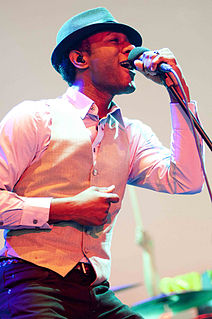A Quote by Jacob Bronowski
We receive experience from nature in a series of messages. From these messages we extract a content of information: that is, we decode the messages in some way. And from this code of information we then make a basic vocabulary of concepts and a basic grammar of laws, which jointly describe the inner organization that nature translates into the happenings and the appearances we meet.
Related Quotes
Acoustic ecology is the study of information systems: the shared acoustic environment and how species send and receive messages in this shared acoustic environment. What these messages mean - meaning, what are the consequences and the changes of behavior in any species. And it has as much to do with us individually and biologically as it does with the shaping of cultures and beliefs.
People are more likely to search for specific books in which they are actively interested and that justify all of that effort of reading them. Electronic images and sounds, however, thrust themselves into people's environments, and the messages are received with little effort. In a sense, people must go after print messages, but electronic messages reach out and touch people. People will expose themselves to information in electronic media that they would never bother to read about in a book.
A citizen walking through the airport today is bombarded with 1984-style propaganda messages that are designed to make us fear some amorphous threat and also be suspicious of others. The government designs these messages to make us feel dependent and heavily lorded over in every aspect of our lives. These messages are becoming ever more pervasive, hitting us even in grocery stores when we are shopping.
Mathematicians have been hiding and writing messages in the genetic code for a long time, but it's clear they were mathematicians and not biologists because, if you write long messages with the code that the mathematicians developed, it would more than likely lead to new proteins being synthesized with unknown functions.
Just as entropy is a measure of disorganization, the information carried by a set of messages is a measure of organization. In fact, it is possible to interpret the information carried by a message as essentially the negative of its entropy, and the negative logarithm of its probability. That is, the more probable the message, the less information it gives. Cliches, for example, are less illuminating than great poems.
The Obama campaign is one of the greatest examples of what is possible in the brave new world of 21st Century marketing. They did a masterful job of connecting with minds, personalizing messages, refining old and new media, sending clear messages, and providing the feedback that enabled them to respond to the messages they heard.





































